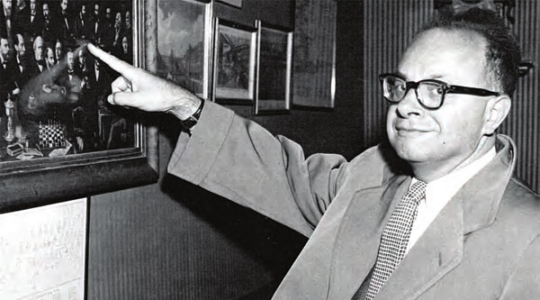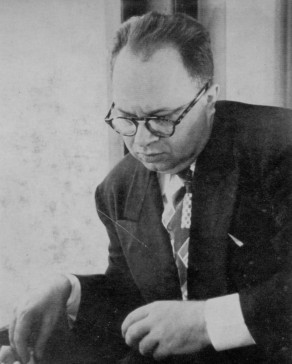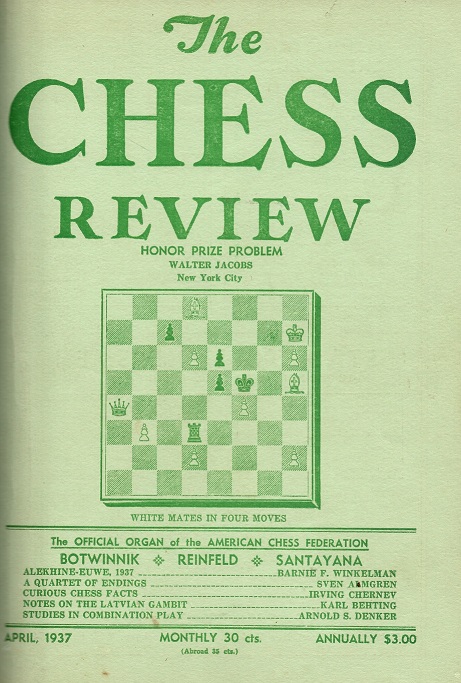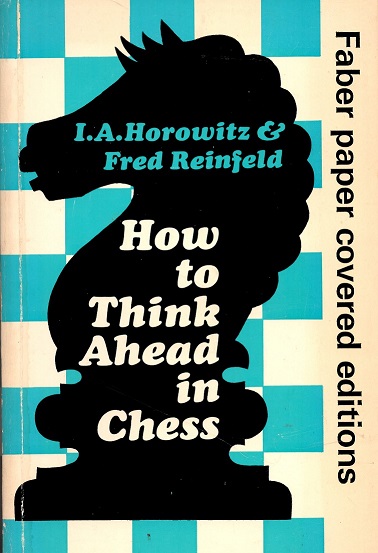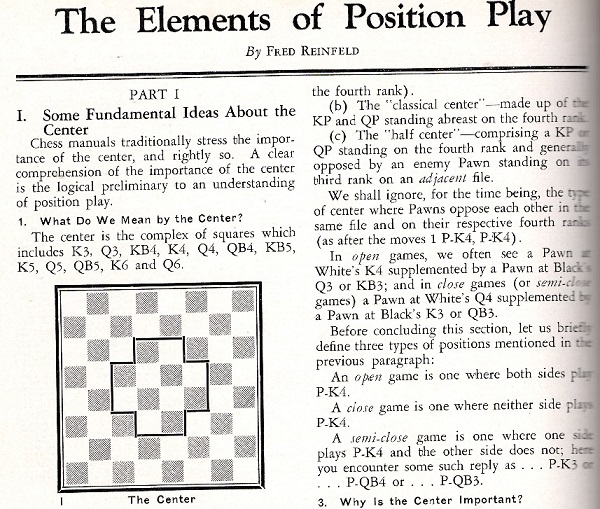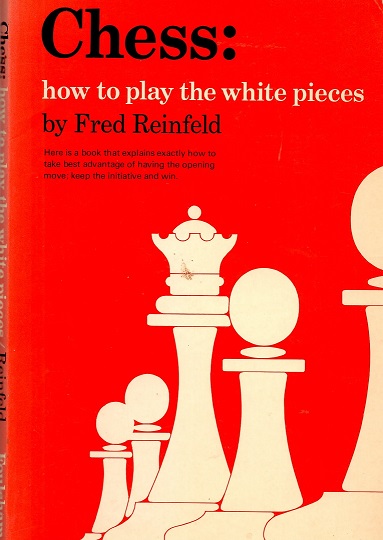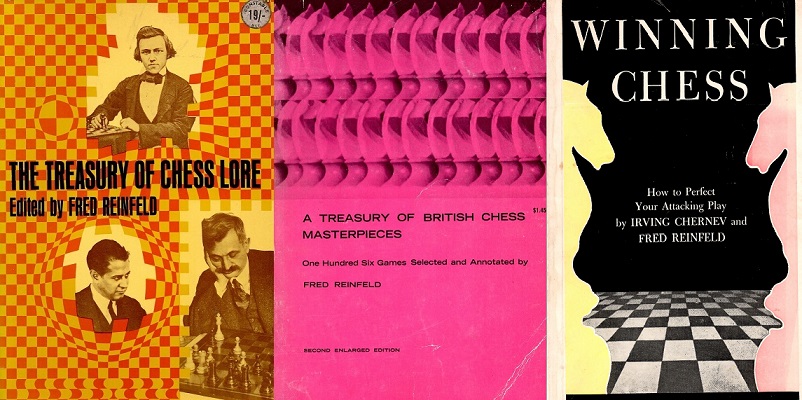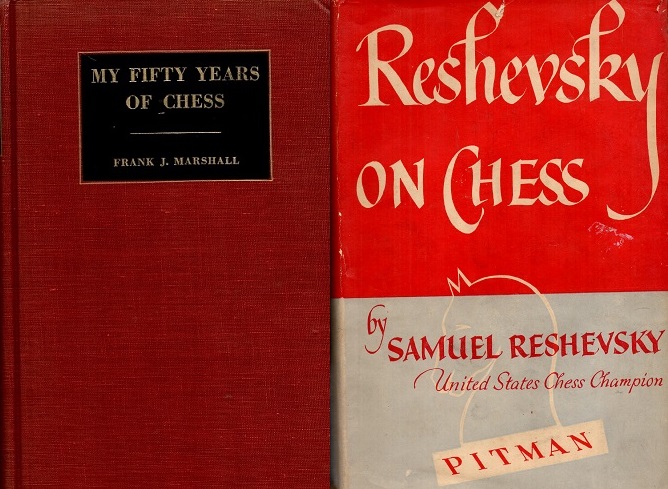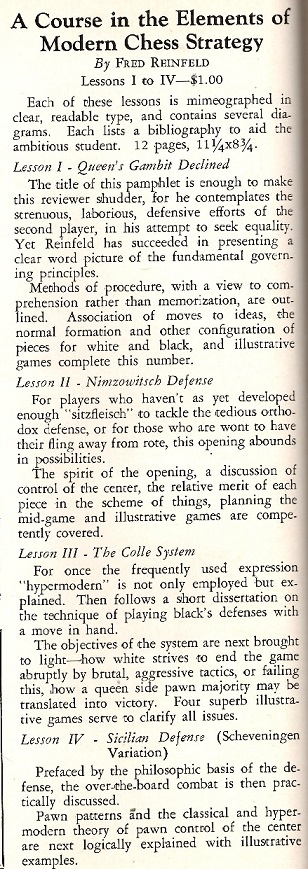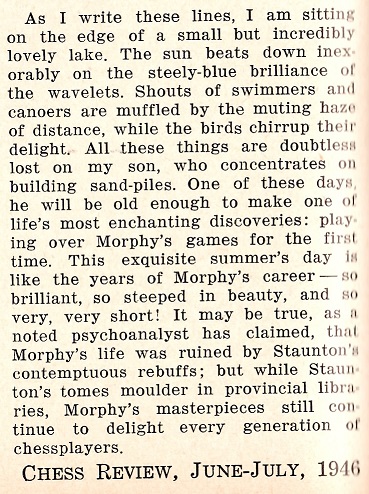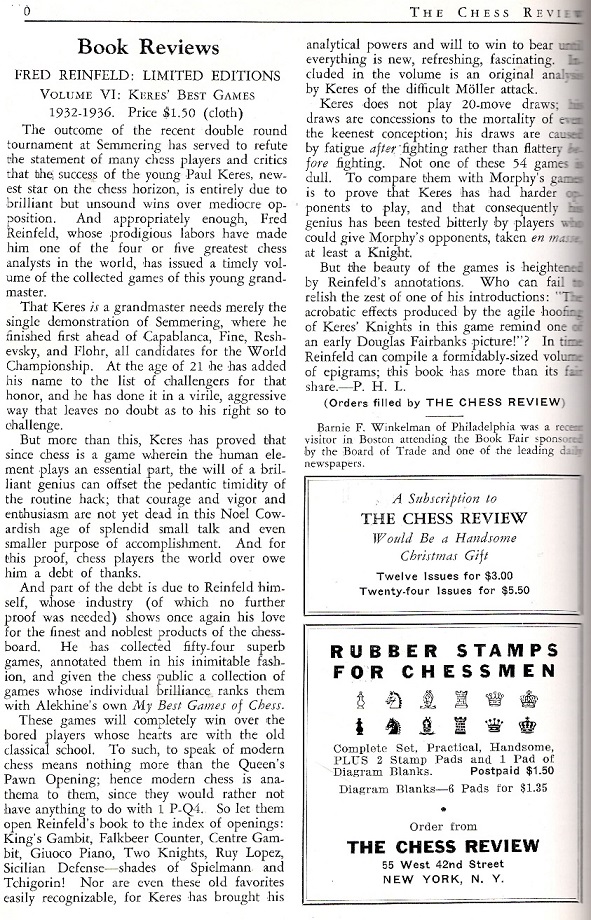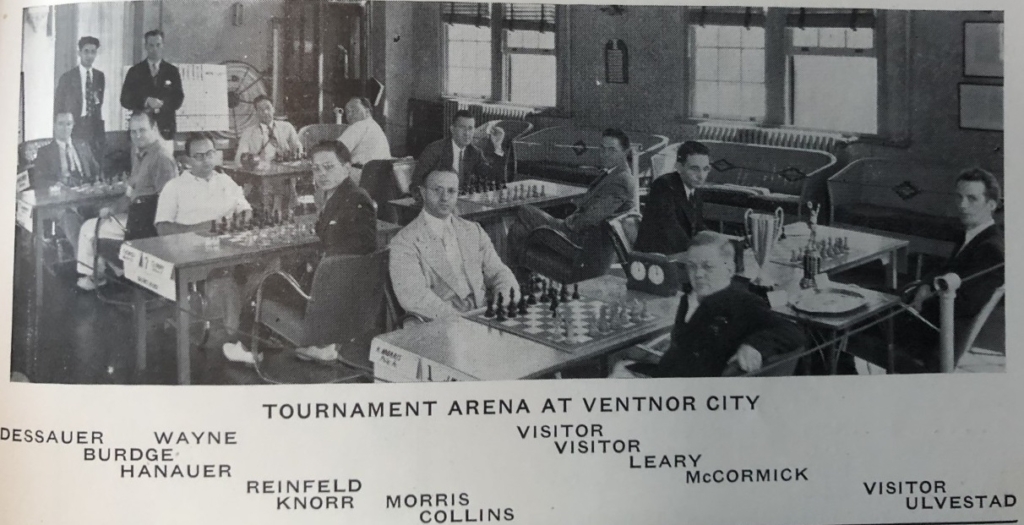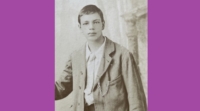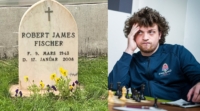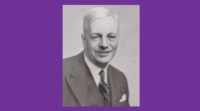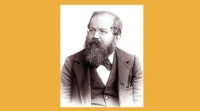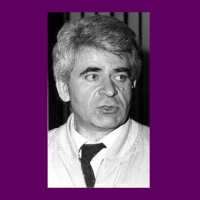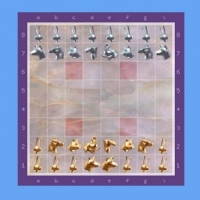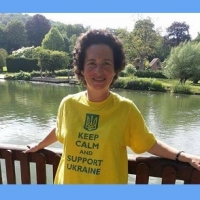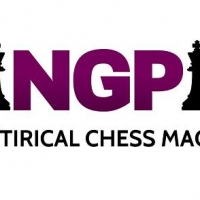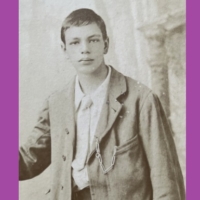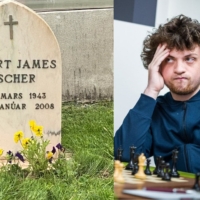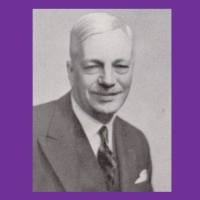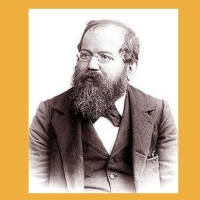Fred Reinfeld
The Man Who Taught America Chess, with 282 Games
Alex Dunne
194 pages | Softback | Bibliography, Indexes | $45.00
Jefferson: McFarland, 2018
Tim-Jake Gluckman
This biography of Fred Reinfeld (1910-1964) covers the chess life of an outstanding producer (writing, editing, ghosting and translating) of over 100 books on chess, and more than 40 on other topics, including 15 on numismatics (some classics). Less well-known is that for a while (c.1936-41) Reinfeld was one of the top players in the United States and claimed some notable scalps. His other roles in the world of Caïssa extended to managing the US team and serving as a consultant to the World Book Encyclopedia and the Random House College Dictionary. He taught private students and extra-mural courses at two excellent universities in the 1930s and 1950s.[1]
Dunne has created a helpful introduction to the life of a path-breaking figure in chess publishing, for which he deserves our thanks, but the book is a missed opportunity. Such an idiosyncratic personality as Reinfeld deserves a more rounded and better researched treatment: for instance, a search of Edward Winter’s Chess Notes website returns over 200 hits for “Fred Reinfeld”; one wonders how many Mr Dunne examined.
What is in the book?
Alex Dunne is an American FIDE master and author of several books;[2] a ten-minute youtube.com interview from 2008 covers his chess development and outlook.[3] The book contains 278 of FR’s games: 54 have notes, 17 are graced by FR’s original comments, and three games are annotated by others including Reuben Fine. In contrast chessgames.com has only 123, so kudos to the biographer for bringing together what is undoubtedly the largest ever collection of FR’s games. The games start with a trickle from his school and college years and then proliferate as the standard of opposition rises. There are tournament tables of events, nearly all on the East Coast, such as the Marshall Club Championship and qualifying events for the US Championship. FR usually came third/fourth at best, marking him out as a strong player but lacking the necessary ‘killer instinct’ and consistency to rise from the pack.
Success over the board became less important for him as he found his way as a writer, editor and chess teacher. In 1942 he realised that he could not make a living as a player and gave up serious competitive chess. By then he had already gained a reputation as a versatile writer. With his college contemporary Israel Horowitz and others he had founded the lively chess magazine The Chess Review in 1934. It broke with the fusty style that typified chess journalism at the time, like B.H. Wood’s magazine Chess founded the following year.
The biography focuses on chess and has little to say about FR’s life beyond tournament performances and his publications. Dunne includes reviews of Reinfeld’s many books on chess, e.g. Practical Endgame Play (1939), but never discusses them in the round. They are always taken at face value and never scrutinised for a hidden undercurrent or insight into how the reviewer’s relationship with Reinfeld might have influenced them. Nor is it clear why Dunne focused on some books, however rudimentarily, and not others. Were the reviewers always as complimentary as Dunne’s selection implies?
Topping the bill with Botvinnik and philosopher George Santayana
Reinfeld’s qualities as a chess writer
Why is a book about Reinfeld needed now? He was a gifted chess writer who excelled at influencing beginners and club players. The eccentric English IM and teacher Mike Basman recalls the revelation of reading Reinfeld:
‘when I began chess I really liked the Reinfeld books. …a lot of his books gave the sense of excitement and drama and fired the imagination in a way that the boring Batsford books from the sixties didn’t.’[4]
I myself can confirm how transformational an FR book was for me. In 1961, as an eleven-year-old I had been given How to Think Ahead in Chess which contains a repertoire outline of three openings. It had more impact on me than any other I have read; I can still recall the key ideas I took from it 60 years ago. I imagine that many others would say the same.
Even top players were impressed by his writing. ‘An excellent and impartial chess author’ wrote former World Champion Dr Max Euwe in a complimentary preface to a collection of his games (1939) FR had annotated. Former World Correspondence Champion C.J.S. Purdy called Practical Endgame Play (1939) ‘a most valuable work’. Neither Euwe nor Purdy was given to empty praise.
What’s missing from the book
A biography should portray its subject in a way that gives the reader a genuine sense of their time and what it was like to be around them. Some of the historical articles published in New in Chess offer good examples of this lively style. Consider the one about chess evangelist Herman Steiner (NIC 2015.6): ‘The story of a charismatic man whose legendary Hollywood Chess Group was one of his many contributions to American chess.’[5] In his book Kurt Richter (also published by McFarland) Alan McGowan vividly recreates the atmosphere of chess life in Berlin in the 1920 and 30s,[6] including its cafés.[7] If Richter’s personality seems elusive, that says more about the nature of the man than the negligence of the biographer.
Dunne tells us little about New York’s colourful chess scene and people Reinfeld would have known; it was a city full of émigrés from Central Europe, many of whom found more fulfilment in chess than a professional career. Nowadays the personality and career of leading US players such as Weaver Adams[8] and Sammy Reshevsky[9] are hardly known. Outlining their background in relation to FR would have brightened the book.
Reinfeld the polymath
The best picture of Reinfeld as a Mensch comes from his son, Don (b. 1942), a long-time member of the New York Symphony Orchestra:
‘As I was growing up, I was always astounded by my father’s knowledge and deep understanding of many subjects. He was always eager to answer my questions about politics, economics, history, science, philosophy. He had read widely in literature, and I later came across letters he had written to my mother before their marriage explaining how to read Proust and listen to Italian opera; they loved the open-air concerts at Lewissohn Stadium.’[10]
FR was a fascinating personality, and evidently he and his wife were highly cultivated. He had studied to be an accountant but the beauty of chess drew him away from all that. His calling was to transmit his energy and enthusiasm for the game into writing that lit the fuse for many aspiring players. Besides good taste he had great intelligence and drive. Don recounts some of his father’s extraordinary skills:
‘As a teenager I was astounded when I was forced to conclude that he remembered absolutely everything he read, and every move of every game he had ever played or perused when browsing through chess journals. He worked all the time, every day, from right after breakfast until late at night. He would take breaks for walks and for reading and listening to classical music, his other great passion.’
I learned this from Bill Wall’s notes on FR’s life and not from the McFarland book although Wall’s text was available to the biographer. Even allowing for a son’s roseate view of his father, the statement of a long-time professional classical musician rings true. If Dunne believes these statements to be apocryphal or a distortion, then he should have said so. The book makes no reference to these traits even though FR’s work ethic was critical to his success.[11]
Not only has Dunne overlooked Wall’s text but he also appears to have missed the vivid portrait in Arnold Denker’s lively book about US chess personalities. One cannot be certain because although there is a general Index and Indexes of both opponents and openings, there is no exhaustive list of the author’s sources. Denker, one of the United States’ great post-war players, was an insider who later became a successful businessman. His account contains many telling and piquant details that would have invigorated Dunne’s text. Dunne does not even reference the book (available free as an online download) and merely credits an excerpt quoted at Chess.com without citing the correct URL; another opportunity missed.[12]
Dunne tells us nothing about Reinfeld’s book sales or his earnings from them. Denker reveals that FR earned $100 for three weeks’ work ghost-writing a book for Frank Marshall.[13] The low rate of pay (c.$5 per day) may explain FR’s astounding productivity.
Dunne does quote a short portrait of FR from Denker’s book:
‘. . . a short, pudgy, bespectacled, and very private young man who had one of zaniest senses of humor – tellingly tinged with acid – that anyone could imagine . . .’ (p.47)
However, Dunne fails to follow the trail for examples of that zany humour. He doesn’t even mention a couple of aphorisms Wall had found:
‘The pin is mightier than the sword’
‘Short of actual blunders, the lack of faith in one’s position is the chief cause of defeat.’
Dunne states that FR ‘got to exhibit some of the venom he was known to have’ (p.79) but leaves it at that. Irving Chernev (who co-wrote 20 books with FR) went further in a letter (1977) quoted by Edward Winter in Chess Notes:
‘Reinfeld hated impartially. He hated Morphy, Alekhine and Capablanca, most of all chess players – except those who bought his books.’ (C.N. 644)
What of the disputes that embroiled Reinfeld? A person’s true nature is often revealed by their behaviour during quarrels. Dunne is not curious, quotes a couple of sarcastic putdowns and leaves it at that. So when Dunne refers en passant to the 1950 USA vs Yugoslavia match and tells us the American team was ‘splintered with disputes’, we learn nothing more about it. It is quite likely that FR attempted to mediate between Reshevsky and Herman Steiner, that colourful chess evangelist, but Dunne is silent.
Chess Review (January 1938)
Reinfeld the chess teacher
We learn next to nothing either about aspects of Reinfeld’s life other than his tournament results or the books that he wrote. For instance, in 1938 he offered chess lessons at his home at 25 cents per lesson (p.86). Who were his clients and what were his teaching methods? There must be accounts by his pupils.
What of FR’s work at the two universities where he taught popular chess modules? What we do learn from Dunne is that a US chess organ announced (7-8 / 1953) that from October to December 1953 FR would deliver a series of lectures on the elements of chess, e.g. checkmates / sacrifices (p.155). Four pages later: ‘FR’s chess courses continued to be very successful’ (p.159). The word ‘continued’ assumes some prior information that is missing. Leaving that quibble aside, we are told that ‘[FR] was on the staff at the School for General Education at New York University where he taught a class in chess’ (p.163). This implies a change in his status, but if he only taught one class it seems unlikely that he was truly a member of staff.
This raises a number of questions: what exactly was his status at NYU, e.g. was he a professor? Or was he merely a freelance giving extramural courses open to all? What methods did he use? How many students registered for the courses? There should be relevant documents in the archives of those universities about the course’s remit and his duties. Was his work monitored in any way? What was the framework for chess teaching in the middle of the twentieth century? So many tantalising questions but sadly so many blanks.
At least one of Reinfeld’s two children was still alive when the author wrote the book; they could have been a valuable source. Did the author put adverts in appropriate journals to find Zeitzeugen (living witnesses of history) who have relevant contributions about Reinfeld’s family or other aspects of his life?
Dunne doesn’t disclose how he went about his work. Very probably FR’s children and/or their children in turn have papers they inherited from their parents; if so, did he approach them about that? What family stories have been passed down about FR? Did the biographer try to locate correspondence, diaries, first drafts and so on? If he did, there is no sign of it in the book. There is no indication of Dunne having researched the papers of contemporaries who might have cast light on the real FR. For instance, what did Reuben Fine, psychologist, professor and successful author, make of the zany workaholic?
All these omissions give the book a shallow feel.
How many books did Reinfeld write?
A biography should provide a definitive bibliography, and this one doesn’t. The author doesn’t tell us if his list is complete or how he compiled it.
I counted in Dunne’s bibliography 219 seemingly separate books which FR either wrote, co-wrote or edited, 46 of which are not about chess. He edited 17 of the chess books and two of the non-chess ones, a few were translated, and numerous were ‘ghosted’. No fewer than 29 are reprints – the same book but under a different title. To further complicate matters, one item in the Bibliography is said to consist of 24 ‘volumes’, most apparently quite short; the main text refers to 20 not 24 volumes, so presumably this is a proof-reading mistake.[14]
Ghosted books
It is hard to know what to make of Wall’s unsourced claim that FR wrote 260 books.[15] Apparently Reinfeld’s widow gave that number to New York University (NYU) as part of a library of c.1000 volumes (details repeated in FR’s Wikipedia entry).[16] Wall doesn’t point out that almost a score of the books in the bibliography are ones that FR edited rather than wrote, so 260 appears highly improbable.
Wall explains it as follows but as usual without giving a source:
‘In the 1940s, the Brooklyn Public Library listed over 250 books on chess alone, authored by Reinfeld. Many of them were duplicated, stapled sheets of paper, which he peddled from bookstore to bookstore during the Great Depression.’
So many were not books at all but quick ‘nickel and dime’ pamphlets.
What makes it more puzzling is that a few lines earlier Wall himself claims ‘by the end of 1955 FR had written more than 50 books on chess’. Apparently he doesn’t consider those ‘duplicated, stapled sheets of paper’ to be books. It is self-evident that in the last nine years of his life FR could not have had a hand in close to 70+ (Wall) or 150+ (Dunne) volumes on chess.
Dunne does tell us that before he found a publisher (prior to 1932), FR had mimeographed books on openings and translated some German articles into English. But he gives us no idea of their length, price or means of distribution. It would not have been difficult for Dunne to visit the Library of NYU and see what volumes were lodged there. That is likely to be the definitive collection because such a conscientious person as FR most likely kept a copy of each of his publications which his widow Beatrice would have maintained after FR’s death in 1964. Or did Dunne’s expenses not run to the cost of the journey to New York?
Dunne might have commented on the question of how he compiled the bibliography; moreover any questions could be answered by a librarian at NYU. Wall’s potted biography was available to him when Dunne wrote this volume. It is also a little surprising that when FR was inducted into the US Chess Hall of Fame in 1996, he was credited only with ‘more than 100 titles on a range of subjects’, whereas to his credit Dunne demonstrates that it is well over 150.
Chess Review (January 1937)
Reinfeld’s relations with his publishers
A striking feature of the bibliography is the many companies that published his books – not only specialist chess houses but also leading book publishers such as Faber and Faber, Simon & Schuster, and Harcourt Brace.[17] Publishers should feature as strongly in the life of a writer as, for example, studios in the life of a film-maker. This book tells us very little about them. It would be interesting to know whether FR moved from publisher to publisher out of choice, dissatisfaction with their advances, or for some other reason. Which publishing houses provided him with the best editors and support, and which paid poorly? As a result of this deficit in the research we never find out how big FR’s sales actually were which in turn means that we glean nothing about Reinfeld’s earnings. It is one of the book’s major weaknesses.
Great Short Games of the Chess Masters (New York: Collier Books, 1961)
Reinfeld’s books on other topics
It may surprise chess buffs that Reinfeld wrote on many subjects – for example, he was an acknowledged expert on numismatics. The New York Times described FR’s 1956 coin index as ‘widely acclaimed as the standard catalogue for coins of the world’.[18]
One of his books on politics, The Great Dissenters: Guardians of Their Country’s Laws and Liberties (1959) won the Thomas Alva Edison Foundation award ‘for special excellence in portraying America’s past’. It is still in print although the Amazon page tells us that the book was published before 1923![19]
Fred Reinfeld was a generalist. With his photographic memory and capacity for uninterrupted work, he was able to immerse himself in many subjects and write popular books on them. As his son Don testified, FR was genuinely interested in a wide range of topics. He covered such varied fields as literature, draughts, popular science, everyday maths, for instance, as well as numismatics.
In Chapter 14, ‘Books and more books’, Dunne provides brief descriptions of over 100 books, but many of the thumbnails run to no more than 20 words. All these terse comments – in this chapter and elsewhere – make no attempt to assess the books’ strengths and weaknesses. Here and elsewhere, critical thinking is completely absent, producing a sense of disappointment and the perception that the book could have been so much better with just a little more effort.
A rare glimpse of the lyrical family man
Reinfeld’s interactions with people and events
Reinfeld’s prize-winning book on politics suggests that he was astute on affairs of state and the legal principles underlying the US Constitution. Some of that awareness must surely have seeped into his conversation, notes, diaries, letters, and so on. We learn next to nothing about FR’s politics apart from a passing reference to the Great Depression, a formative experience for so many at that time. How did his background affect his social/political outlook? Life could not have been easy for this son of immigrant parents – father Barnett Reinfeld was Polish and his mother (Rose Pogorzelski Reinfeld) Romanian. What did Fred tell his two children about his upbringing?
He was 31 when the United States entered the Second World War (December 1941). How was he affected by conscription? The government widened its net in 1942 and 1943.[20] FR might have been marked for white-collar work given his undoubted skill as a writer and facility for languages (also ignored by Dunne).[21] The US military certainly valued chess and commissioned Arnold Denker to give exhibitions at Army bases and on board aircraft carriers.[22]
1941-1945 was a period of unparalleled amity between the United States and the USSR, but shortly afterwards the Cold War began in earnest with threat of nuclear destruction. New York is a very political city; what did FR make of these changes in relations given that the Soviet Union was the world’s leading chess nation? What sort of contacts did he have with Eastern Europeans?
What did Reinfeld think of Bobby Fischer? They were both very rooted in New York and it is probable that they met. This is another omission all the more surprising given the fascination – at times unhealthy – which Fischer still appears to command.
‘In time Reinfeld can compile a formidably-sized volume of epigrams; this book has its fair share.’
Review by Paul Hugo Little, Chess Review (December 1937)
Conclusion
I am inclined to concur with Edward Winter’s criticism that this book is ‘unworthy’ of McFarland.[23] Nevertheless, it is a workmanlike study even if it fails to do its subject justice. It presents Reinfeld in a historical vacuum and leaves so much unsaid about a talented and multifaceted personality. So many questions are left unanswered. How many books did FR actually sell? Which books were his most / least successful and why? Was his prolific output a result of poor deals with publishers? Why did he write for so many different publishers? Were any of his books translated? Did he have any contacts with radio or TV? What makes it worse is the apparent lack of any critical thinking in this book. How and why did Reinfeld’s books create their impact? Were his methods innovative? If so, in what way? How did he compare with his contemporaries?
An expanded second edition should address these and other questions.
Notes
[1] In the 1930s, he was teaching adults (extra-mural) at NYU in the School of General Education and Columbia University. Dunne could have investigated Reinfeld’s work there. In 1958, FR joined the staff at the School of General Education of New York University as an instructor in chess.
[2] https://www.amazon.com/s?k=Alex+Dunne+chess&i=stripbooks-intl-ship&ref=nb_sb_noss
[3] https://www.youtube.com/watch?time_continue=6&v=9eWG_sZO-RM&feature=emb_logo
[4] British Chess Magazine (6/1998), p.302 (interview with IM Mike Basman).
[5] https://tabayas.blogspot.com/2015/09/new-in-chess-20156.html
[6] https://mcfarlandbooks.com/product/kurt-richter/
[7] https://en.chessbase.com/post/a-rich-chess-life-berlin-chess-cafs-1920-1933
[8] Harry Golombek described Adams as being on his reserve list of ‘the ten most interesting personages of the last 100 years’. https://en.wikipedia.org/wiki/Weaver_W._Adams
[9] https://en.wikipedia.org/wiki/Samuel_Reshevsky
[10] http://billwall.phpwebhosting.com/articles/reinfeld.htm
[11] Don Reinfeld’s account is backed up by Arnold Denker: ‘every time I tossed out lines from Goethe, Schiller et alia, Fred finished them effortlessly. He also spoke several other languages.’
[12] The book is a page-turner, and the organisation (KUPDF) that has made it available should be thanked for their initiative; each chapter includes some of the best games played by the 30 American players depicted, each with his own chapter. https://kupdf.net/download/the-bobby-fischer-i-knew-and-other-stories_5a21a7e9e2b6f5fe0228e451_pdf
[13] My Fifty Years of Chess (1942).
[14] A Course in the Elements of Modern Chess Strategy (1935, 1936 and 1938).
[15] http://billwall.phpwebhosting.com/articles/reinfeld.htm
[16] https://en.wikipedia.org/wiki/Fred_Reinfeld
[17] Others include Barnes & Noble, Macmillan, and Doubleday.
[18] A Catalogue of the World’s Most Popular Coins (1956. Sterling. New York).
[19] https://www.amazon.com/s?k=The+Great+Dissenters%3A+Guardians+of+Their+Country%27s+Laws+and+Liberties%29.%5B&i=stripbooks-intl-ship&ref=nb_sb_noss
[20] https://en.wikipedia.org/wiki/Conscription_in_the_United_States#World_War_II
[21] For instance, did he grow up bilingual given that his parents were bilingual? How many languages did he know?
[22] https://en.wikipedia.org/wiki/Arnold_Denker#World_War_II_years
[23] https://www.chesshistory.com/winter/extra/ghostwriting.html
Games
“If the hopes and fears of the two contestants could have been graphed as the game progressed, the chart would have contained enough icebergs to fill the Atlantic Ocean.”
Chess Review (probably Reinfeld himself) on Ulvestad–Reinfeld.

